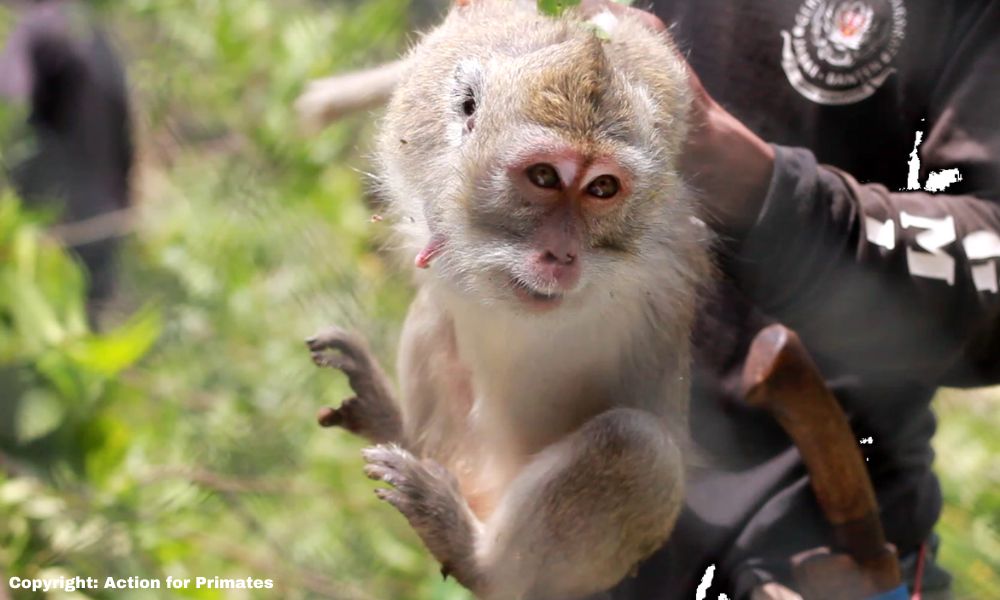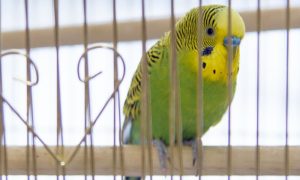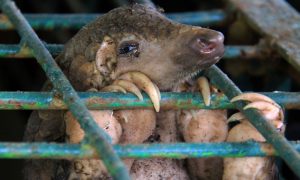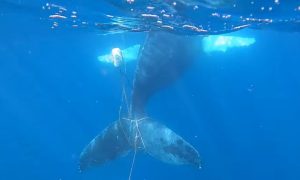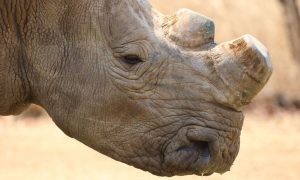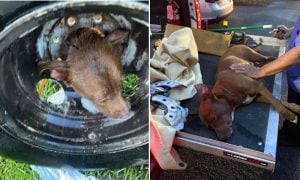Animal advocacy groups Lady Freethinker and Action for Primates are calling on the U.S. to stop importing long-tailed macaques (Macaca fascicularis) from Indonesia. The call follows the revelation that, in 2023, over 1,400 long-tailed macaques, who were captured from the wild in Indonesia, were imported by the US research and testing industry. This was despite widespread global concerns about the inherent inhumanity of trapping wild monkeys and increasing awareness of the vulnerability of the conservation status of this species.
Documents obtained through a Freedom of Information request submitted to the U.S. authorities showed there were three shipments of long-tailed macaques in 2023: 322 individuals imported on 17th May; 540 on 31st May and 540 on 27th December. All the monkeys were reported as having been captured in the wild. This represented an increase of almost 40% since 2022 when 870 wild-caught macaques were imported by Primate Products in Florida, and 120 captive-born macaques were imported by Charles River Laboratories.
Action for Primates has previously released harrowing video footage of the capture of wild long-tailed macaques in Indonesia. which provides compelling evidence of the cruelty of the trappers and the suffering and distress caused to the monkeys. This included brutal capture methods, the forced separation of nursing infants from their mothers, and the beating and killing of unwanted individuals. Such inhumane treatment is a clear breach of international animal welfare guidelines.
Long-tailed macaques are CITES listed in Appendix II, with their conservation status having been increased to Endangered with a decreasing population trend by the International Union for the Conservation of Nature (IUCN) Red List of Threatened Species.

Courtesy of Action for Primates
The U.S. is one of the world’s largest importers and users of non-human primates. Long-tailed macaques are the primary non-human primate species used in regulatory toxicity tests, which is the area in which most non-human primates are used. Toxicity (or poisoning) testing is carried out to assess adverse reactions to drugs (or chemicals), and often involves substantial suffering and death.

Courtesy of Action for Primates
Nina Jackel, Founder of Lady Freethinker stated: “The spike in macaques being shipped from Indonesia to the U.S. for research and testing purposes is shocking and alarming. The evidence clearly shows that these animals are suffering immensely, and it’s time for the government to take meaningful action to stop the cruelty.”
Sarah Kite, co-founder, Action for Primates, stated: “Capturing monkeys from the wild inflicts substantial suffering. The handling and treatment of the monkeys seen in the Action for Primates video is brutal and inherently inhumane. It is also a clear breach of international animal welfare guidelines. Action for Primates is urging the USA government to dissociate itself from this extreme cruelty by banning all imports of monkeys from Indonesia.”
Long-tailed macaques are indigenous to Indonesia, part of the rich and diverse ecosystem, contributing to the country’s unique biodiversity. The species, however, is not protected under Indonesian law and, in addition to the capture and export for the global research and testing industry, its wild populations face many other threats, including hunting for human consumption; capture as ‘pets’ or to be used in tourism and ‘entertainment’ activities, including the disturbing rise in baby macaque abuse videos filmed for broadcast on social media; and killing due to negative interactions with people.
A petition launched by Lady Freethinker and Action for Primates urging the United States government to immediately end the import of monkeys from Indonesia is available for people to sign here.
SIGN: Justice for Indonesian Monkeys Trapped and Brutalized for Research Labs

